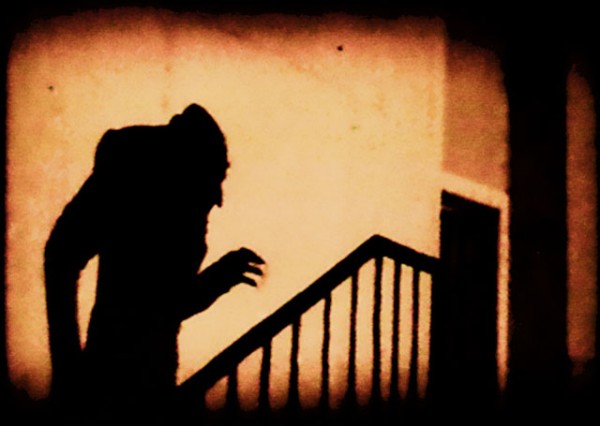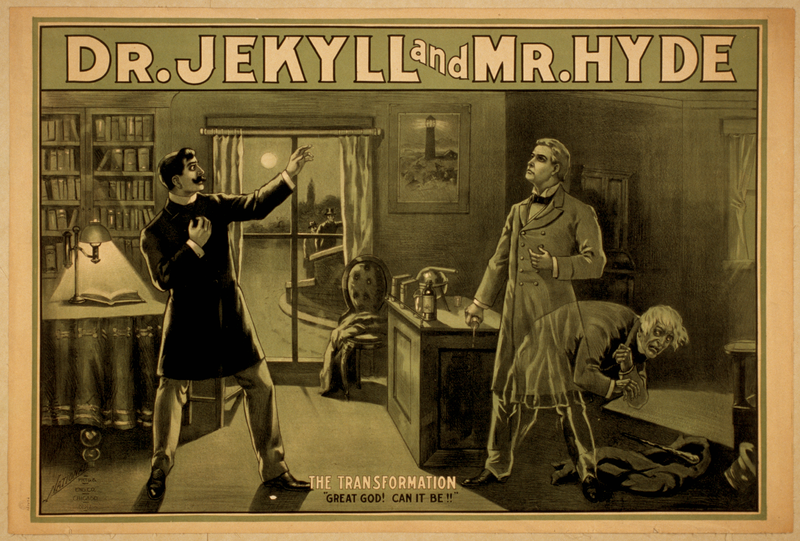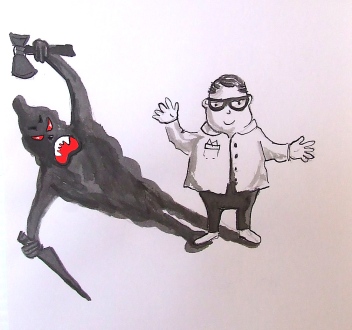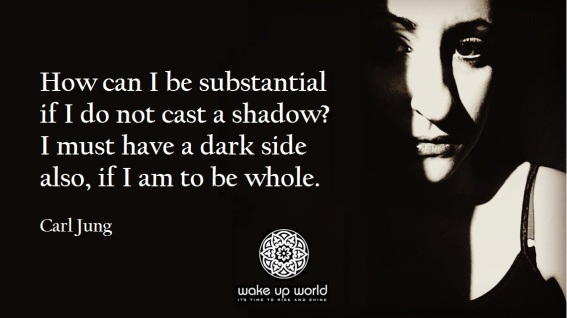Welcome to the Shadows of the Unconscious Mind
By clicking on the parchment you have portal jumped to a hidden page. There's a Language Translator at bottom of page.

Lately I’ve been taking walks in the evening but not just a walk to wear off pounds, stay fit, or to get somewhere (I always walk to the local coffee shop, however). I do what is known as “mindful walking” where I try to just notice everything–it’s a form of meditation that’s quite pleasant really.
But I wondered if I could use this meditation in other parts of my life and what advantages and/or insights might this bring me?
What if I were to just observe my expectations, my biases, judgments, emotions and dramas? What if I were to do so dispassionately without getting into them and without allowing myself to get carried away by them?
I’ve tried this from time to time on the lesser dominant aspects of each with some success in that they tend to melt away when I don’t feed them. But, alas, I’m still working with the really powerful–the ones that show up when I'm angry or hurt. It feels more like resistance or an attempt to deny when I apply mindfulness to the stronger of these aspects and resistance to anything often just strengthens it. Just labeling these aspects “negative” or wanting to rid myself of them tends to bias them against me.
They’re shadows really, and shadows can reflect both positive and negative traits. It’s the parts of ourselves of which we are not fully conscious or even aware of for the most part. They reside in that vast unconscious part of ourselves.
In the negative, it’s that part of ourselves where we may feel deficient but then project that deficiency onto someone else. When kept hidden these shadows can strengthen and fog over ones perception of reality so much so that one cannot even see the fog. If you’re having extreme difficulties in relationships, making way too many mistakes, or getting the job you want, or holding on to the one you have, or feeling satisfaction or happiness chances are you’re being crippled in part by your unconscious shadow elements–by the negative aspects and absence of the positive. In short, an unacknowledged shadow limits ones freedom to respond effectively to the circumstances of life.
Unattended conflicting desires, or motivations, can even cause health issues making one vulnerable to all kinds of opportunistic “bugs”.
So how do you identify your shadows?
• One way is to notice who bugs you and why. Sometimes just noticing your reaction to someone else’s laziness, or dishonesty, or sloppiness, or stupidity, or jerkiness will let you see into your own manifestation of these traits.
• What do you resist/reject in others?
• What about yourself do you hide from others? Or attempt to hide from yourself?
In a dream, a dark creature might threaten you, or there’s a same sex character dressed in black or hidden in the shadows of your dream bedroom. Creatures or shadow figures stalking or chasing you are frequently the unconscious aspects of yourself wanting to be dealt with and exposed to the light of consciousness. The deeper they are suppressed i.e. the more a person tries to disacknowledge certain parts of themselves, the greater negative affect they can have on them.
There’s a caution here in that recognizing your shadow can bring about shame and self-esteem issues. This is when we begin to believe that we are what we are hiding and that of course is just not true e.g. we have a shadow we are not our shadow.
To be truly free and express true free-will everyone in their own way needs to learn to recognize and integrate their shadow.
Shadow Work
What drives some of our more problematic personality traits? Why do we tend to attribute certain traits to other people, or be more sensitive to certain events than others? Why do we tend to criticize ourselves more in one area of our lives than in another, especially when there is little or no evidence to support our criticism? What is it about some people that we automatically dislike and why do we do that?
The answers for all of these questions include a host of variables, but hidden among them all is a singular constant–our self. We project our self onto everything, every event and every person. Mostly we do this unconsciously, though often with deliberation, but without the facts about ourselves that drives our projections. Frequently it is our own dark shadows, the parts of us that we resist acknowledging, or even look at closely, that runs our opinions and points-of-view. We all have these shadows and we all fear them (Go ahead, deny that last statement, but what's behind your denial? Belief? Anger? Self-protection? Look deeper.) The shadows are the animal part of each of us that lurk beneath the surface of our veneer of civilization.
We control them through our laws, our religious pronouncements, parental and societal controls and eventually integrate this control into our own personalities, but the shadows are still there! And anything suppressed, or oppressed will periodically leak out of its container and effect the environment. It is of course best to know your enemy, both its strengths and its weaknesses so as to best work with it, especially if it is fundamentally undefeatable. Sometimes containment and integrating its strengths while reducing the negative effects of its weaknesses is the best policy.
Shadow effects
Some people seem over-controlling, why? Could it be that they don’t feel safe with others, which could also include that they feel more comfortable with what they judge to be their superior point-of-view?
Why do some people seem to hog all the acknowledgment, or need for the focus to be on them? Could it be that they are insecure within themselves and crave the outside world to actualize their value?
Why do some people see incompetence all around them, could it be that they aren’t sure of their own competence?
Note that in the examples above the opposite aspect of the behavior shown by the person provides some hint as to the nature of the unresolved shadow they may be dealing with. This opposition technique when reviewing a dream for interpretation is also quite effective and no wonder, because both the meanings of the sleeping dream and the waking dream are generated through projections.
I suggest that many of these projections come from the shadow, or some inappropriate accomodation to it, within.
Often those who deny the inner shadow the most, through their vehement denial of the shadows in others, are the most victim to it. This may be why the areas in the world, including our own country, where people seem the most zealously pious are the places where human rights are the most violated. For example, some of the most religious places in the world have the greatest rates of oppression and child abuse, as well as the abuse and disenfranchisement of women. In short, the negative effects of the shadow that have been violently suppressed and denied are leaking out all over the place. Over the long haul, projecting it onto others, and/or suppressing it just does not work–ever!
As I’ve said before, when we ignore our shadows, the shadow has power over us, it can run (or ruin) our lives. When we function as though most of the events in our lives are something outside of us, then we become the victim to life instead of a co-creator of it.

The perfect example of an unrecognized shadow and its effect
And this is where personal therapeutic work comes in, because for the most part, therapy, counseling, dream work (both individual and group, because people outside of you can often spot a personal shadow at work better than you can), etc. is about assisting an individual to look at the shadow(s) within, not to get rid of it, but to become at peace with it, to accept its reality and integrate and use its energy in a more effective manner. For me this is called “Shadow Work.”
Though it may be fearful, a shadow within a dream, even those that might disturb, or create nightmares, is a welcome event, for I can then get down to work on what is not working in my personal world.
Yes, we are each born with a tendency toward certain personality aspects and these tend to either generate the shadows, and/or to interact in such a way as to reinforce them, but we are not bound to these personality traits. I also recommend Personality Testing as part of your inner work (see the section to the right of this blog for recommended personality testing programs). But, though personality testing helps to explain why we’re doing what we’re doing, it is not the end game, or point of the process. It is just the beginning to aid you in the process of discovery and can help to define your own shadows.
Dream work, meditation and assisted therapy are also important tools. Too often I’ve seen people who use their knowledge of personality typing to explain away their behaviors, or to pigeonhole the behaviors of others. This approach serves only to entrench the shadow and serve the ego’s desire to ignore it.
Shadows in the form of memories can also affect our waking life perceptions especially if the reality of those memories have been corrupted by time, or through the ministration of others, or even the misplacement of their content thematically within the brain.

Excerpt from http://darkknightofthesoulblog.wordpress.com
Down in the cave of the human mind where reality stops being reality lays the world of the dream. It is here that the mind’s inner eye perceives a fantasy much richer in form and function than the theater of the waking world.
In order to enter this world one needs to suffer a kind of death, for here is a place where the body cannot go.
Unless you live in total darkness there’s always a shadow, a hidden reflection of yourself–it is by definition that place where light cannot reach because of some obstruction. And that obstruction is often your ego-self.
The ego is that part of us that forms the conscious world identity that we hide behind and the inner image of ourselves that we are both proud of and afraid of simultaneously.
It is the guardian at the gate of our consciousness. It is the judge and jury for what gets sent to the shadow lands of our unconscious mind. And like our waking world prisons our shadow lands are overcrowded with what we reject and fear to face.
This is the netherworld of the shaman, medium, and mystic. But is also the hidden world of you and I. Whether mystic or common man we are called by our dreams to explore an underworld that rules the world above. Given that most of our mind is hidden from consciousness we often act, feel, and behave out of some mysterious force. When compounded by all the individuals of a society that force can become overwhelming for good or bad and lead us to our destiny or destruction.
When we don’t acknowledge the real forces behind our actions or our pathology we often make up things to explain these behaviors. For example, we will point at our parents, our upbringing, our genetics and our experiences with each other as cause for our beliefs, ideas and behaviors. But more often than not it is our un-dealt with shadow that is the true source of much of what we do, or don’t do, and it’s often the motivating force behind our actions.
Some say that to live more authentically, to be truly free, and to be more alive, one needs to deal with their hidden aspects, their shadow nature.

|